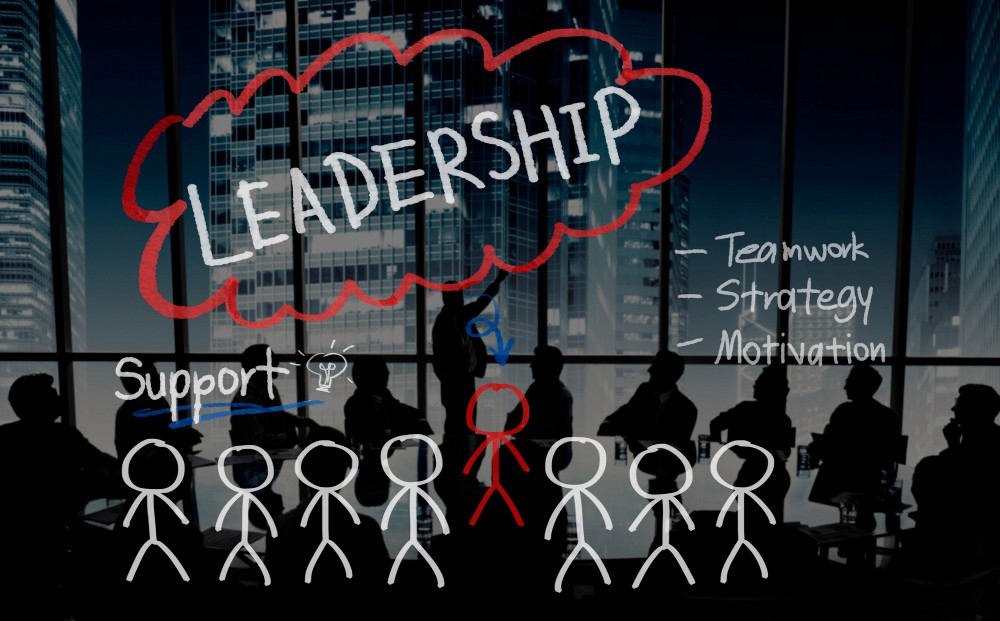Early Phase
Becoming a Leader Early On: Cultivating Leadership Skills in Your First Job.

Team NxtClue
|
8 mins
|
Sep 1, 2024

0:00/1:34
Don't have enough time to read?
Listen

Building Leadership Skills in Your First Job: A Mindset for Success
Picture this: You’re a year or two into your first job. You’ve mastered your daily tasks, built good rapport with your colleagues, and your manager is pleased with your performance. But you’re starting to wonder, What’s next? How can I stand out and make a bigger impact? You may think leadership skills are reserved for those with years of experience or managerial titles, but here’s the truth: leadership is not about seniority or having a team report to you. Leadership is a mindset—an approach to how you conduct yourself in the professional arena.
If this resonates with you, you’re not alone. Many early-stage professionals want to develop leadership skills but feel they lack the authority or experience. The good news is that leadership isn’t defined by a title or position. It’s about demonstrating qualities like initiative, integrity, and the ability to inspire and influence others. Let’s explore how you can cultivate a leadership mindset in your first job and set yourself up for long-term success.
How to Build Leadership Skills Early in Your Career
1. Take Initiative and Go Beyond Your Job Description.
Leadership often begins with taking the initiative—going beyond what is required and seeking opportunities to contribute more. This demonstrates that you are proactive and willing to take on challenges, which are key qualities of a leader.
Solution: Look for ways to add value to your team or company beyond your regular duties. Volunteer for new projects, suggest improvements to existing processes, or offer to help a colleague with a task. Taking initiative shows that you are committed to the organization’s success and eager to grow.
Tip:
“Approach your manager with ideas for new projects or process improvements. Frame your suggestions in terms of the value they will bring to the team or company to show you’re thinking beyond your role.”
2. Develop Strong Communication Skills
Effective communication is a cornerstone of leadership. It’s not just about speaking clearly but also about listening actively, understanding different perspectives, and conveying your ideas persuasively.
Solution: Practice active listening during meetings and one-on-one conversations. Make sure to articulate your thoughts clearly and concisely. Pay attention to non-verbal cues like body language and facial expressions to gauge how your message is being received.
Tip:
“Seek feedback on your communication style from colleagues or mentors. This can provide valuable insights into how you can improve and become a more effective communicator.”
3. Cultivate Emotional Intelligence
Emotional intelligence (EI) is the ability to understand and manage your own emotions, as well as recognize and influence the emotions of others. High EI is often what sets great leaders apart, as it enables them to build strong relationships and navigate complex social dynamics in the workplace.
Solution: Work on self-awareness by regularly reflecting on your emotions and how they influence your behavior. Practice empathy by putting yourself in others’ shoes and considering their feelings and perspectives.
Tip:
“Read books or take courses on emotional intelligence to deepen your understanding and learn practical techniques for improving your EI.”
4. Demonstrate Integrity and Accountability
Leaders are known for their integrity and accountability. They take ownership of their actions, admit their mistakes, and strive to make things right. Demonstrating these qualities early in your career can help build trust and respect among your peers and managers.
Solution: Be honest and transparent in your communications, and take responsibility for your actions, especially when things don’t go as planned. Show that you’re committed to learning from your mistakes and continuously improving.
Tip:
“When a mistake happens, focus on solutions rather than excuses. Approach your manager with a plan for how you will address the issue and prevent it from happening again.”
5. Build a Collaborative Spirit
Leadership is often about working effectively with others to achieve common goals. Building a collaborative spirit means fostering teamwork, encouraging diverse viewpoints, and supporting your colleagues.
Solution: Encourage open communication and collaboration within your team. Offer help when you can and be open to receiving assistance. Recognize and appreciate the contributions of others to create a positive, inclusive environment.
Tip:
“Facilitate team-building activities or informal discussions to strengthen team cohesion and build a culture of collaboration.”
6. Be Adaptable and Open to Change
The workplace is dynamic, and leaders must be adaptable and open to change. Being flexible and willing to adjust your approach when circumstances change is a key leadership quality.
Solution: Embrace new challenges and be open to learning new skills or processes. View change as an opportunity for growth rather than a setback. Demonstrating adaptability shows you can handle uncertainty and thrive in a fast-paced environment.
Tip:
“When faced with change, stay positive and look for ways to contribute to the transition. Show that you are a problem solver who can help the team navigate new situations.”
7. Seek Out Mentorship and Continuous Learning
Leaders are lifelong learners who are constantly seeking to improve themselves and learn from others. Seeking mentorship and engaging in continuous learning are great ways to develop your leadership skills.
Solution: Find a mentor within your organization or industry who can provide guidance and support. Take advantage of training opportunities, workshops, and online courses to build new skills and knowledge.
Tip:
“Ask your mentor for advice on developing specific leadership skills or navigating workplace challenges. Learn from their experiences and apply those lessons to your own career.”
8. Lead by Example, Even Without a Title
Leadership is about influence, not authority. You can lead by example in your daily actions and decisions, regardless of your position. Show professionalism, dedication, and a positive attitude, and others will be inspired to follow.
Solution: Be consistent in your work ethic, uphold the company’s values, and be a role model for your peers. Your actions will speak louder than any title, and your influence will naturally grow.
Tip:
“Demonstrate a strong work ethic and a positive attitude, especially during challenging times. How you handle pressure and setbacks will set the tone for your team.”
Conclusion
Building leadership skills in your first job isn’t about waiting for a title or a team to manage. It’s about adopting a leadership mindset—taking initiative, communicating effectively, demonstrating integrity, fostering collaboration, being adaptable, seeking mentorship, and leading by example. By developing these qualities early in your career, you position yourself as a valuable asset to your organization and set the stage for future growth and success.
Ready to start leading from where you are? Begin implementing these strategies today, and remember—leadership is a journey, not a destination. You have the potential to lead and inspire, no matter your role or title!
Building Leadership Skills in Your First Job: A Mindset for Success
Picture this: You’re a year or two into your first job. You’ve mastered your daily tasks, built good rapport with your colleagues, and your manager is pleased with your performance. But you’re starting to wonder, What’s next? How can I stand out and make a bigger impact? You may think leadership skills are reserved for those with years of experience or managerial titles, but here’s the truth: leadership is not about seniority or having a team report to you. Leadership is a mindset—an approach to how you conduct yourself in the professional arena.
If this resonates with you, you’re not alone. Many early-stage professionals want to develop leadership skills but feel they lack the authority or experience. The good news is that leadership isn’t defined by a title or position. It’s about demonstrating qualities like initiative, integrity, and the ability to inspire and influence others. Let’s explore how you can cultivate a leadership mindset in your first job and set yourself up for long-term success.
How to Build Leadership Skills Early in Your Career
1. Take Initiative and Go Beyond Your Job Description.
Leadership often begins with taking the initiative—going beyond what is required and seeking opportunities to contribute more. This demonstrates that you are proactive and willing to take on challenges, which are key qualities of a leader.
Solution: Look for ways to add value to your team or company beyond your regular duties. Volunteer for new projects, suggest improvements to existing processes, or offer to help a colleague with a task. Taking initiative shows that you are committed to the organization’s success and eager to grow.
Tip:
“Approach your manager with ideas for new projects or process improvements. Frame your suggestions in terms of the value they will bring to the team or company to show you’re thinking beyond your role.”
2. Develop Strong Communication Skills
Effective communication is a cornerstone of leadership. It’s not just about speaking clearly but also about listening actively, understanding different perspectives, and conveying your ideas persuasively.
Solution: Practice active listening during meetings and one-on-one conversations. Make sure to articulate your thoughts clearly and concisely. Pay attention to non-verbal cues like body language and facial expressions to gauge how your message is being received.
Tip:
“Seek feedback on your communication style from colleagues or mentors. This can provide valuable insights into how you can improve and become a more effective communicator.”
3. Cultivate Emotional Intelligence
Emotional intelligence (EI) is the ability to understand and manage your own emotions, as well as recognize and influence the emotions of others. High EI is often what sets great leaders apart, as it enables them to build strong relationships and navigate complex social dynamics in the workplace.
Solution: Work on self-awareness by regularly reflecting on your emotions and how they influence your behavior. Practice empathy by putting yourself in others’ shoes and considering their feelings and perspectives.
Tip:
“Read books or take courses on emotional intelligence to deepen your understanding and learn practical techniques for improving your EI.”
4. Demonstrate Integrity and Accountability
Leaders are known for their integrity and accountability. They take ownership of their actions, admit their mistakes, and strive to make things right. Demonstrating these qualities early in your career can help build trust and respect among your peers and managers.
Solution: Be honest and transparent in your communications, and take responsibility for your actions, especially when things don’t go as planned. Show that you’re committed to learning from your mistakes and continuously improving.
Tip:
“When a mistake happens, focus on solutions rather than excuses. Approach your manager with a plan for how you will address the issue and prevent it from happening again.”
5. Build a Collaborative Spirit
Leadership is often about working effectively with others to achieve common goals. Building a collaborative spirit means fostering teamwork, encouraging diverse viewpoints, and supporting your colleagues.
Solution: Encourage open communication and collaboration within your team. Offer help when you can and be open to receiving assistance. Recognize and appreciate the contributions of others to create a positive, inclusive environment.
Tip:
“Facilitate team-building activities or informal discussions to strengthen team cohesion and build a culture of collaboration.”
6. Be Adaptable and Open to Change
The workplace is dynamic, and leaders must be adaptable and open to change. Being flexible and willing to adjust your approach when circumstances change is a key leadership quality.
Solution: Embrace new challenges and be open to learning new skills or processes. View change as an opportunity for growth rather than a setback. Demonstrating adaptability shows you can handle uncertainty and thrive in a fast-paced environment.
Tip:
“When faced with change, stay positive and look for ways to contribute to the transition. Show that you are a problem solver who can help the team navigate new situations.”
7. Seek Out Mentorship and Continuous Learning
Leaders are lifelong learners who are constantly seeking to improve themselves and learn from others. Seeking mentorship and engaging in continuous learning are great ways to develop your leadership skills.
Solution: Find a mentor within your organization or industry who can provide guidance and support. Take advantage of training opportunities, workshops, and online courses to build new skills and knowledge.
Tip:
“Ask your mentor for advice on developing specific leadership skills or navigating workplace challenges. Learn from their experiences and apply those lessons to your own career.”
8. Lead by Example, Even Without a Title
Leadership is about influence, not authority. You can lead by example in your daily actions and decisions, regardless of your position. Show professionalism, dedication, and a positive attitude, and others will be inspired to follow.
Solution: Be consistent in your work ethic, uphold the company’s values, and be a role model for your peers. Your actions will speak louder than any title, and your influence will naturally grow.
Tip:
“Demonstrate a strong work ethic and a positive attitude, especially during challenging times. How you handle pressure and setbacks will set the tone for your team.”
Conclusion
Building leadership skills in your first job isn’t about waiting for a title or a team to manage. It’s about adopting a leadership mindset—taking initiative, communicating effectively, demonstrating integrity, fostering collaboration, being adaptable, seeking mentorship, and leading by example. By developing these qualities early in your career, you position yourself as a valuable asset to your organization and set the stage for future growth and success.
Ready to start leading from where you are? Begin implementing these strategies today, and remember—leadership is a journey, not a destination. You have the potential to lead and inspire, no matter your role or title!
0:00/1:34
Don't have enough time to read?
Listen


8 mins
Early Phase
Becoming a Leader Early On: Cultivating Leadership Skills in Your First Job.

Team NxtClue
|
Sep 1, 2024
Copyright © 2024 NxtClue | All Rights Reserved

I May Not Be the Menu, But I Can Still Guide You – I Know Some Shortcuts!
With us
Decision is yours
Without us

Copyright © 2024 NxtClue | All Rights Reserved

I May Not Be the Menu, But I Can Still Guide You – I Know Some Shortcuts!
With us
Decision is yours
Without us


I May Not Be the Menu, But I Can Still Guide You – I Know Some Shortcuts!
With us
Decision is yours
Without us

Copyright © 2024 NxtClue | All Rights Reserved
